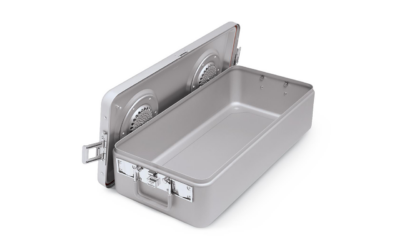Maintaining a patient’s core temperature is important before, during and after surgery. The importance of maintaining a healthy body temperature has spurred a specific health care market that continues to grow and is expected to reach new highs in coming years.
The most common complication of surgery is unintended hypothermia, which is the reduction of core body temperature to 35 C or lower, according to AORN. In the OR, 52 percent of patients and 42 percent in the PACU were found to have unintended hypothermia, according to one published study. In addition, some may be as high as 50 to 90 percent, according to another study published in 2011.
“For the surgical patient, hypothermia can be traced to heat loss due to the cold environment in the surgical room and the effects of anesthesia-induced thermoregulation impairment. Hypothermia can cause adverse events, such as cardiac arrhythmias, surgical site infections, increased mortality, metabolic acidosis, respiratory distress, increased blood loss, alteration of medication metabolism and muscle relaxation, and may prolong the post-surgical recovery time,” according to an article written by Sophia Mikos-Schild, RN, MSN, EdD, MAM/HROB, CNOR.
Risk factors for hypothermia include body weight, age, medications, environment and patient procedure elements.
The global temperature management market is estimated to grow at a CAGR of 2.4 report through 2019, according to a recent report from the research firm MarketsAndMarkets.
“Development of technologically advanced intravascular systems, increasing prevalence of cancer and cardiovascular disease, rapidly aging population, and increasing adoption of temperature management systems are key factors fueling growth of the market,” according to the report. “However, unfavorable health care reforms in the U.S. market and product recalls are some of the key restraints hampering the market.”
The global market will be aided by developing areas in Asia and Central and South America.
“Emerging markets, including China, India, Brazil, and Mexico are the new revenue pockets for companies that are engaged in the development and marketing of patient warming and cooling systems,” according to MarketsAndMarkets. “Growing patient population, government initiatives for the modernization of health care systems along with the supportive regulatory environment, and rising trends of medical tourism in these countries owing to low-cost surgeries are key factors propelling demand for temperature management systems in the emerging markets.”
Research and Markets also predicts growth in the temperature management market, including in the U.S. market.
“The analysts forecast the global patient temperature management market to grow at a CAGR of 7.4 percent over the period 2013-2018,” according to a news release. “One of the key factors contributing to this market’s growth is the increasing incidence of cardiac and CNS disorders. The global patient temperature management market has also been witnessing an increase in mergers and acquisitions among the leading vendors to increase their global presence and to achieve economies of scale. However, the unavailability of adequate scientific support for the systematic and protocol-driven application of these devices could pose a challenge to the growth of this market.”
Some key vendors in this space include 3M Health Care, Cincinnati Sub-Zero Products Inc., Covidien plc, Smiths Medical, Augustine Temperature Management LLC and Ecolab Inc.









